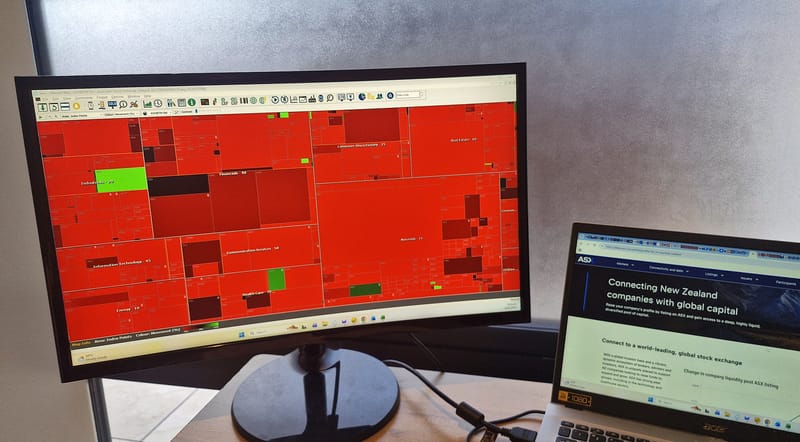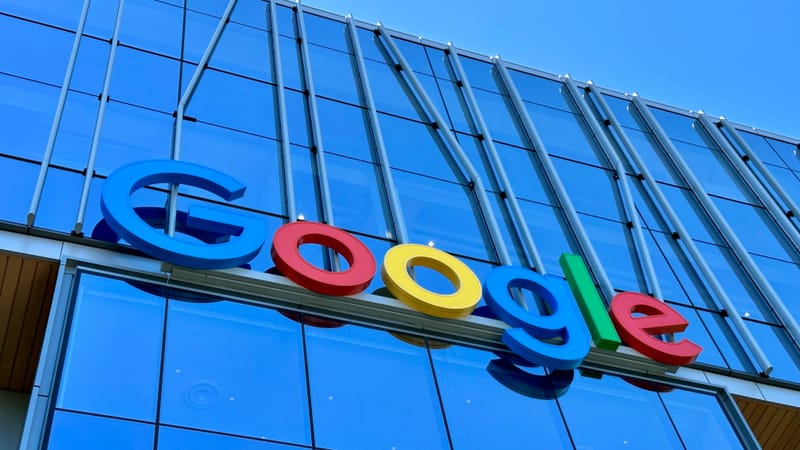Wall St rallies as Trump’s Russia sanctions boost Brent crude, big oil
Trump and Xi will get their face-to-face.

Brent crude prices surged and the oil majors such as Chevron, Exxon Mobil, BP and Shell were stronger after US President Donald Trump imposed new sanctions on Russia’s two biggest oil companies, Lukoil and Rosneft, in the latest attempt to pressure President Vladimir Putin into a Ukraine peace deal.
Meanwhile, Trump will have his meeting with Chinese President Xi Jinping after the recent flare-up in tensions between the two superpowers, helping calm nervous markets with the CBOE’s volatility index easing from its recent spike.
Stocks on Wall Street were broadly stronger, with the Magnificent 7 all gaining ahead of chipmaker Intel’s quarterly earnings after the bell, including Tesla, which recovered after reporting a decline in quarterly profit.
And ASB Bank economists estimate Fonterra Cooperative Group’s sale of the Mainland consumer business will spur about $4.5 billion of new spending through the domestic economy once farmers have visited the bank manager to repay some debt.
Black gold
Brent crude oil futures were up 5.2% at US$65.87 a barrel at 7am in Auckland as oil prices surged after US President Donald Trump imposed new sanctions on Russian oil companies Lukoil and Rosneft, ratcheting up pressure on Russia’s President Vladimir Putin to reach a peace deal with Ukraine.
Shares of major oil companies including Chevron, Exxon Mobil, BP and Shell rallied on the news.
“A surge in oil prices, after the US imposed additional sanctions on Russia, has contributed to higher treasury yields as the market looks ahead to CPI data this evening,” Bank of New Zealand senior interest rate strategist Stuart Ritson said in a note. “Taxes from the oil and gas industry account for close to a quarter of the federal budget.”
Separately, the White House said Trump will meet his Chinese counterpart Xi Jinping in a trip to Asia next week, with a thawing in tensions between the superpowers in recent weeks as they jostle for access to critical minerals used in tech devices.
Stocks on Wall Street were stronger, with the S&P 500 up 0.7% in late trading and the tech-heavy Nasdaq Composite advancing 1%.
The Magnificent 7 mega-companies were all stronger in the session, including electric vehicle maker Tesla as it recovered from an earlier decline following a 37% decline in quarterly earnings as it ramped up spending on R&D. Chipmaker Intel is among companies reporting after trading closes, along with Ford Motor Co and mining company Newmont.
Shiny stuff
Gold prices stabilised from their sharp slump earlier this week, with futures up 2.1% at US$4,151 an ounce.
Quantum computing companies, such as Rigetti Computing, Quantum Computing and IonQ all rallied on reports that several companies are in talks to give the US commerce department equity stakes in return for federal funding. Rigetti was among the top 10 traded US stocks among Sharesies users in the current session.
Across the Atlantic, stock markets were also stronger with the UK’s FTSE 100 index up 0.7%, while Germany’s DAX 30 and France’s CAC 40 both advanced 0.2%.
Gucci-owner Kering rallied on a stronger quarterly earnings report than expected, boosting other luxury companies, while German’s SAP advanced after beating analysts’ estimates. Still, European earnings have been mixed, with fewer beats than their US counterparts.
The upbeat tone is set to continue into the antipodes, with Australian futures pointing to a 0.2% increase for the S&P/ASX 200 index when trading opens across the Tasman, and the kiwi dollar rose to 57.54 US cents at 7am in Auckland from 57.25 cents yesterday.
No local data are scheduled for today, while Tourism Holdings will hold its annual meeting in Auckland.
And ASB Bank economists today said the upcoming sale of Fonterra’s Mainland consumer business to France’s Lactalis is expected to deliver $3.2 billion to about 8,000 farmer shareholders if they approve the deal. Between 40% and 60% of that is expected to be saved or used to repay debt, with the rest predicted to spur $4.5 billion of spending in the broader economy.
Reporting by Paul McBeth. Image from Zbynek Burival on Unsplash.







